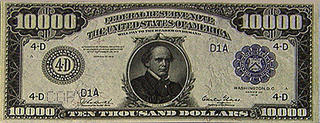 I've become intrigued with untangling the Union's cotton operations during the ACW but am coming up sourceless, generally. Consider this appetizer:
I've become intrigued with untangling the Union's cotton operations during the ACW but am coming up sourceless, generally. Consider this appetizer:The notion that Chase was "lax" is wonderfully sweet and typical of the naiveté you find among Unionists in our field. In fact, he had his protege, Irvin McDowell (cousin to Ohio's ex-governor Dennison) running the Army's cotton inspectorate in 1863 while McDowell's brother Malcom traded cotton on his own account while working as paymaster of the Army of the Tennessee. Chase's son-in-law, William Sprague, provided a major buying market (= beneficiary) for cotton brought across the lines.When Salmon P Chase was Secretary of the Treasury he had been accused of being lax in the way he handled the cotton permits which allowed some trading with the south to keep the cotton mills in the north active.
The capture of a Confederate blockade runner in 1864 threatened to discredit Chase who had just been appointed Chief Justice and Lincoln would have suffered from the scandal; Chase’s son-in-law Senator William Sprague of Rhode Island was implicated in a scheme of running guns through though Texas were they were exchanged for cotton for Sprague’s cotton mill back in Cranston, Rhode Island. The act if true would have been treason. Stanton for the sake of his party, Lincoln and his friend Chase, hushed the matter and the damning evidence disappeared from the War Department.
McClellan in a July, 1862 letter to S.L.M. Barlow strikes a phrase that resonates across the war "They are aware that I have seen through their villainous schemes..." Villainous schemes ... more fun than warfighting and, in fact, what some rascals do best.
Canby was scathing on the cotton trade: officers involved in the business "barter the cause ... with all the basenesosf Judas Iscariot, but without his remorse."
Guns for cotton. I'll put this research behind McClellan at Gettysburg on my to-do list.
p.s. You may enjoy this H-Net review of Kate Chase and William Sprague: Politics and Gender in a Civil War Marriage. The book's author suggests that Miss Chase "imbibed the Republican ideology that emphasized free labor and personal autonomy. This set of beliefs explained Kate's commitment to, and influence in, the Party throughout the 1860s and 1870s." I expect her role in the Sprague cotton operations may be understated, this being a gender study with an object lesson in feminine heroism. The belle ended her life impoverished, selling eggs and milk door-to-door, an interesting end for a Washington power broker married to the onetime richest man in America.



